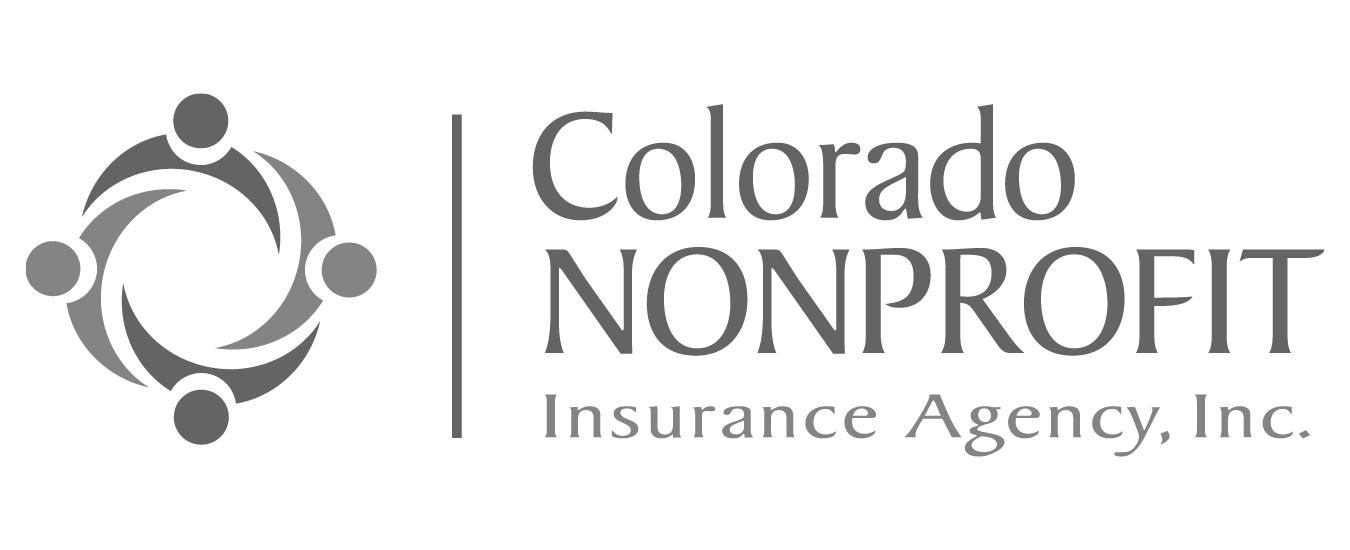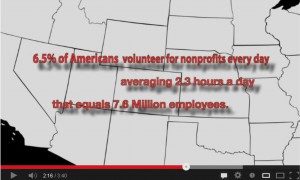
A subsidiary of the California Association of Nonprofits (CalNonprofits) – a statewide alliance of more than 10,000 nonprofits that serves as the voice of the nonprofit community, CalNonprofits Insurance Services (CIS) has been helping California nonprofit organizations with their insurance needs since 1984. Offering exclusive, cost-saving insurance products ranging from general liability coverage to employee benefit programs, more than 900 nonprofit organizations have chosen CIS as their preferred insurance broker.
CalNonprofits Insurance Services has become the one-stop insurance solution for nonprofits in California since its inception and continues to gain momentum. Not-for-profit organizations have unique insurance needs that differ drastically from any for-profit business and CIS understands those needs better than anyone else – constantly researching new products and services to ensure they have solutions to fit whatever benefit needs are out there.
Developing exclusive, cost-effective plans and discount programs that benefit their clients and keeps nonprofits’ insurance dollars at work within the sector is their missions work. “CalNonprofits Insurance Services is unique because we are a social enterprise subsidiary of the California Association of Nonprofits (CalNonprofits),” said Colleen Lazanich, CEO at CIS. “Revenue generated through CalNonprofits Insurance Services stays in the nonprofit sector and strengthens the nonprofit communities in California.”
Dedicated to serving California nonprofit organizations for over 30 years, CIS has the expertise to help nonprofits determine the best insurance coverage needed to protect their unique needs. To learn more about CalNonprofits Insurance Services, visit https://calnonprofitsinsurance.org/!
A UST partner since 1990, the Center for Nonprofit Advancement has been providing advocacy, education, networking, and group-buying power to nonprofit organizations throughout the Greater Washington region since 1979. By providing the tools and resources needed, they’ve been able to help those organizations focus on what truly matters – their mission.
“At the Center for Nonprofit Advancement, we believe strong nonprofits make stronger communities,” said Karen Brown, Vital Health Benefits Trust Director at the Center for Nonprofit Advancement. “Our nonprofit members rely on us to help them advance their mission.”
Center members receive a vast variety of services and support from the Center which include:
Dedicated to representing nonprofit organizations for more than 25 years, the Center is proud to strengthen, promote, and represent members of the nonprofit community by helping over 50,000 individuals advance the mission of more than 800 local organizations. They embody every sector of the nonprofit industry and provide services and support to more than 9 million children, adults, and families around the world. To learn more about the Center for Nonprofit Advancement visit https://www.nonprofitadvancement.org/.

A UST partner since 1990, the Center for Non-Profits has been providing advocacy, resources and training to New Jersey nonprofit organizations since 1982 and is the only umbrella organization for all charities in the state.
Center for Non-Profit members receive a vast variety of services, resources and support that include:
One the of the Centers partners in representing grant makers, Nina Stack, President of the Council of New Jersey Grantmakers, said it best – “For those of us who work in, work for, donate to and are served by nonprofit organizations in New Jersey, we are fortunate to have the Center for Non-Profits watching our backs and protecting our independence.”
For 35 years, the Center for Non-Profits has been New Jersey’s champion and “go-to” resource for and about the non-profit community. They provide non-profits with expert guidance on management and compliance issues, professional educational opportunities through trainings and webinars, inspiration and dialogue through the state’s largest annual non-profit conference, while advocating for a strong non-profit community to leaders in government, business, philanthropy and in non-profits. Members are eligible for additional benefits and special discounts. To learn more about the Center for Non-Profits visit http://www.njnonprofits.org/.

Established in 1989, the Colorado Nonprofit Insurance Agency has been a UST partner since 1983. Having recently joined forces with HUB International, the agency is devoted to serving the 501(c)(3) nonprofit community by providing affordable insurance designed exclusively for nonprofits. Originally established as a benefit to the Colorado Nonprofit Association, the organization has grown in leaps and bounds since its inception.
The Colorado Nonprofit Insurance Agency negotiates and contracts with insurance carriers, evaluates products for quality and cost, researches and develops new products and concentrates on educating their members. A full-service insurance agency, CNIA offers a wide range of products including liability, property, Workers’ Compensation and employee benefits such as health, life and disability coverage. Additionally they provide employee benefit programs ranging from flexible spending accounts to wellness programs.
Serving the Colorado nonprofit community with their insurance needs is all they do! Dedicated to helping 501(c)(3) charitable organizations for over two decades, the Colorado Nonprofit Insurance Agency has many years of experience helping nonprofits determine the best insurance coverage needed to protect their unique needs. For more information on CNIA visit http://coloradononprofitinsurance.org/.

A UST partner since 1983, the CT Community Nonprofit Alliance is the largest advocacy organization for nonprofits in Connecticut, representing hundreds of nonprofit organizations across all categories—ranging from Health and Human Service programs to Arts and Culture. After the Connecticut Association of Nonprofits and Connecticut Community Providers Association joined forces in early 2016, the 600+ nonprofits represented by the new Alliance serve more than half a million individuals every day in areas of mental health, substance use disorders, intellectual disabilities and child and family health and well-being.
“The Alliance is the voice of nonprofits in Connecticut. Our mission is to advocate excellence in community-based nonprofits through advocacy and capacity building,” said Josh Lipshitz, Director of Membership and Business Development at CT Community Nonprofit Alliance. “One example is our partnership with UST, which helped 38 of our member organizations to save over $957,000 in unemployment costs in 2016 alone.”
The Alliance currently offers the following programs and services:
Dedicated to representing nonprofit organizations for more than 35 years, The Alliance has successfully promoted the health and well-being of the 169 communities that compromise the State of Connecticut—focusing their energy on the people and communities they serve. With a plethora of programs and services to offer and a long history of involvement in the nonprofit communities of Connecticut, we’re proud of our long-time partnership with The Alliance.
CT Community Nonprofit Alliance is the collective voice of community providers and nonprofits in Connecticut that strengthen and sustain healthy communities by advocating for community-based, nonprofit organizations. For more information on The Alliance visit www.ctnonprofitalliance.org.
Founded in 1987, the Minnesota Council of Nonprofits has been a UST partner since 1990 and is the largest state association of nonprofits in the U.S. Founded to meet the increasing informational needs of nonprofits, MCN provides the capacity to do together what these organizations could not do individually.
Working to inform, promote, connect and strengthen individual groups and the nonprofit sector as a whole, MCN joins nonprofits together to work on issues of common concern. Since its inception, they have served thousands of member organizations, formed numerous chapters, sponsored countless annual conferences and sees a myriad number of unique website visitors per week.
Some of the tools available through the MCN Resource Library include:
MCN continuously aims at strengthening nonprofits’ inclusion and engagement practices while increasing the sector’s effectiveness in serving new and underrepresented populations. Dedicated to ensuring that nonprofit organizations from across all interests accomplish their missions for a healthy, cooperative and just society, MCN has grown from a grand idea to a solid foundation with 22 state allies and numerous national affiliations. For more information on the Minnesota Council of Nonprofits visit http://www.minnesotanonprofits.org/.

Organizations can spend several months and significant resources searching for and interviewing a new executive leader. Yet, after the position is filled, the onboarding process often does not receive the same level of effort and energy as the hiring process which leaves new leaders vulnerable – a costly risk for any organization but more so for a nonprofit whose funds are already limited.

UST wants to honor all the nonprofits that make a difference every day, all year long—and the amazing individuals that lead them.
We know it’s not easy running a nonprofit and here at UST our sole purpose is to “help nonprofits save money in order to advance their missions.” We’re especially proud to support the efforts of our 2,000 nonprofit members and 80 national and state nonprofit association affinity partners.
For Nonprofit Awareness Month, we wanted to share some ways individuals and nonprofits can boost their passions and causes, and gain awareness of all that nonprofits do, too:
– I am [Your Name] and I work for [Organization]. Our nonprofit employs [x] people and mobilize [y] volunteers in your district.
– Our missionj is to [Your Mission].
– We can be a resource for you on[Topics]. Please call on us if we can be of assistance.
– We would also like for you to be our guest at [Your Organization] when you are in the district. Please contact me or I am happy to follow up with you to see if we can schedule something.
Do you have a favorite nonprofit? Tell us on Facebook
Note: UST does not receive compensation for any links in this article, nor is it responsible for the content on any of the sites to which it links. This is purely educational folks!

Question: May we add an arbitration clause prohibiting class action lawsuits to our employment contracts?
Answer: Yes. Until recently, courts were split on the issue and the National Labor Relations Board (NLRB) ruled that “it is a violation of federal labor law to require employees to sign arbitration agreements that prevent them from joining together to pursue employment-related legal claims in any forum, whether in arbitration or in court.”
However, in its May 2018 decision, the U.S. Supreme Court (SCOTUS) ended the split, overruled the NLRB, and held that arbitration agreements providing for individualized proceedings (thus banning class actions) are enforceable under the Federal Arbitration Act (FAA), and neither the FAA’s saving clause nor the National Labor Relations Act (NLRA) suggest otherwise.
As a result of SCOTUS’s decision, an employer may add an arbitration clause waiving class and collective actions to its employment contracts without fear of violating federal law due to the mere presence of the clause. However, it is essential that any employment contract — with or without an arbitration clause — comply with all applicable laws. Therefore, as always, we recommend seeking counsel to properly draft your arbitration agreement and for further guidance.
Q&A provided by ThinkHR, powering the UST HR Workplace for nonprofit HR teams. Have HR questions? Sign your nonprofit up for a free 30-day trial here.

UST maintains a secure site. This means that information we obtain from you in the process of enrolling is protected and cannot be viewed by others. Information about your agency is provided to our various service providers once you enroll in UST for the purpose of providing you with the best possible service. Your information will never be sold or rented to other entities that are not affiliated with UST. Agencies that are actively enrolled in UST are listed for review by other agencies, UST’s sponsors and potential participants, but no information specific to your agency can be reviewed by anyone not affiliated with UST and not otherwise engaged in providing services to you except as required by law or valid legal process.
Your use of this site and the provision of basic information constitute your consent for UST to use the information supplied.
UST may collect generic information about overall website traffic, and use other analytical information and tools to help us improve our website and provide the best possible information and service. As you browse UST’s website, cookies may also be placed on your computer so that we can better understand what information our visitors are most interested in, and to help direct you to other relevant information. These cookies do not collect personal information such as your name, email, postal address or phone number. To opt out of some of these cookies, click here. If you are a Twitter user, and prefer not to have Twitter ad content tailored to you, learn more here.
Further, our website may contain links to other sites. Anytime you connect to another website, their respective privacy policy will apply and UST is not responsible for the privacy practices of others.
This Privacy Policy and the Terms of Use for our site is subject to change.
UST maintains a secure site. This means that information we obtain from you in the process of enrolling is protected and cannot be viewed by others. Information about your agency is provided to our various service providers once you enroll in UST for the purpose of providing you with the best possible service. Your information will never be sold or rented to other entities that are not affiliated with UST. Agencies that are actively enrolled in UST are listed for review by other agencies, UST’s sponsors and potential participants, but no information specific to your agency can be reviewed by anyone not affiliated with UST and not otherwise engaged in providing services to you except as required by law or valid legal process.
Your use of this site and the provision of basic information constitute your consent for UST to use the information supplied.
UST may collect generic information about overall website traffic, and use other analytical information and tools to help us improve our website and provide the best possible information and service. As you browse UST’s website, cookies may also be placed on your computer so that we can better understand what information our visitors are most interested in, and to help direct you to other relevant information. These cookies do not collect personal information such as your name, email, postal address or phone number. To opt out of some of these cookies, click here. If you are a Twitter user, and prefer not to have Twitter ad content tailored to you, learn more here.
Further, our website may contain links to other sites. Anytime you connect to another website, their respective privacy policy will apply and UST is not responsible for the privacy practices of others.
This Privacy Policy and the Terms of Use for our site is subject to change.
Onboarding programs should be systematic and essential, not organic. Having a transition timeline and Welcome Guide with checklists, sample documents, FAQs and phased transition plans provides a roadmap for the onboarding experience. Core topics should include unique aspects of the organization, company culture, team building and legal matters. Preparing easy-to-digest information that is packaged into short segments allows new leaders to personally identify the areas in which they desire additional, more in depth training.
We can’t say enough how critical planning is in equipping new leaders to successfully fulfill all expectations of them in their new roles. You can make your onboarding curriculum indispensable by leveraging the experience and wisdom of past leaders who can provide real guidance to incoming staff. Taking them on a personal tour of your organization, allows them to acquire a holistic perspective on your nonprofit and an introduction to board members as well as key partners is pivotal early on so a personal connection to the organization starts to manifest well before any first official meetings.
Don’t wait to see if a new leader can succeed with little to no preparation or support and don’t ask them to attend generic onboarding sessions such as Leadership 101. They have to view the process as an essential element and not a throwaway task. Instead, zero in on your particular culture and the processes driving your organization and be sure to offer ongoing opportunities for learning and engagement during the executive’s first year.
Onboarding can often times be overwhelming and intense regardless of the size of your organization. Taking the time to develop a structured onboarding plan helps to ease the stress associated with transition and helps to ensure that your next nonprofit leader will have the tools necessary to succeed and continue the legacy you’ve already built.